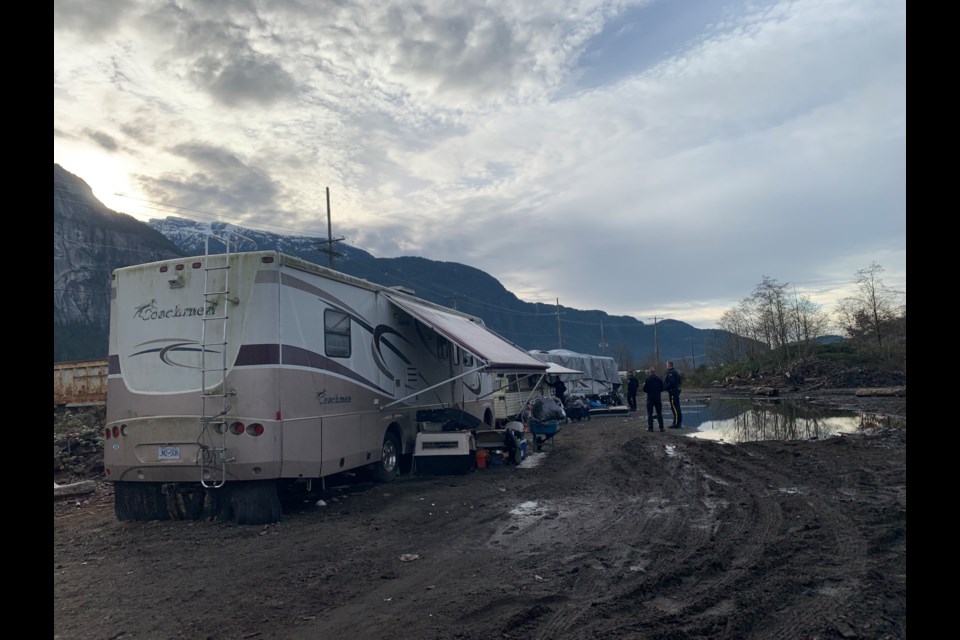Bylaw officers were onsite at a small encampment of RVs and vehicles on District-owned land in downtown Squamish on Thursday, Dec. 5.
The District of Squamish issued notice to the vehicle owners adjacent to 1400 Vancouver Street with a letter on Nov. 25 informing them they were not permitted to park or store their vehicle on the property. While it said they had until Dec. 5 to remove their vehicles and belongings, the vehicles were not towed that day.
“The District plans to remove any abandoned vehicles and remediate the site, while continuing to work with any remaining occupants toward voluntary compliance with the Traffic Bylaw,” said District spokesperson Rachel Boguski, in a statement.
“The District approaches encampments with dignity and compassion for those who may be living on the property. Community Bylaw Services staff conduct routine patrols to notify encampment occupants of District bylaws and aim for voluntary compliance rather than enforcement. We recognize this is a complex issue, and staff works with key organizations to engage and support unhoused individuals to access available services.”
Thomasina Pidgeon, who is part of the Vehicle Residents of Squamish advocacy group, said the term voluntary compliance is misleading.
“They do not want to leave, so it’s not voluntary,” she said. “They need somewhere to park their vehicles. They’re calling them unhoused. They aren’t unhoused. Their vehicles are their houses. Their vehicles provide them with the privacy and dignity they do not get at the shelter. People need to understand vehicles are a form of housing.”
The residents had been parked in the area all summer, she added. It provided an ideal spot: an empty lot close to downtown resources.
Two or three of the vehicles had started to accumulate piles of belongings outside of them, she added. While many vehicle residents follow the rules of continuously moving and not leaving anything behind, it’s important to remember the community is diverse, Pidgeon said.
“Some of the folks there have belongings that don’t fit in their vehicles,” she added. “Their belongings are not garbage to them. Sometimes it’s necessary to meet people where they’re at.”
Furthermore, she said, if vehicles won’t start, owners are left with little choice when asked to move them.
“The District needs to recognize people have found a creative housing solution. If the problem is garbage, put a garbage can there and a toilet,” she said. “There needs to be supportive and inclusive policy, rather than a tow truck.”
Only one vehicle resident was onsite when The Squamish Chief went to the lot on Friday. They declined to comment, but watched as several bylaw officers knocked on RV doors.
Pidgeon said the written notice included a brochure on designated camping spots in Squamish, but almost all of those sites are out-of-reach for many—with high prices or closures for the winter.
“The QR code [on the letter] didn’t work and it’s misleading,” she said. “Vehicle living isn’t camping. It’s another form of living. This needs to be recognized by all levels of government.”




